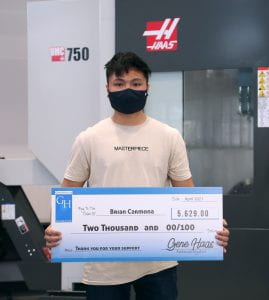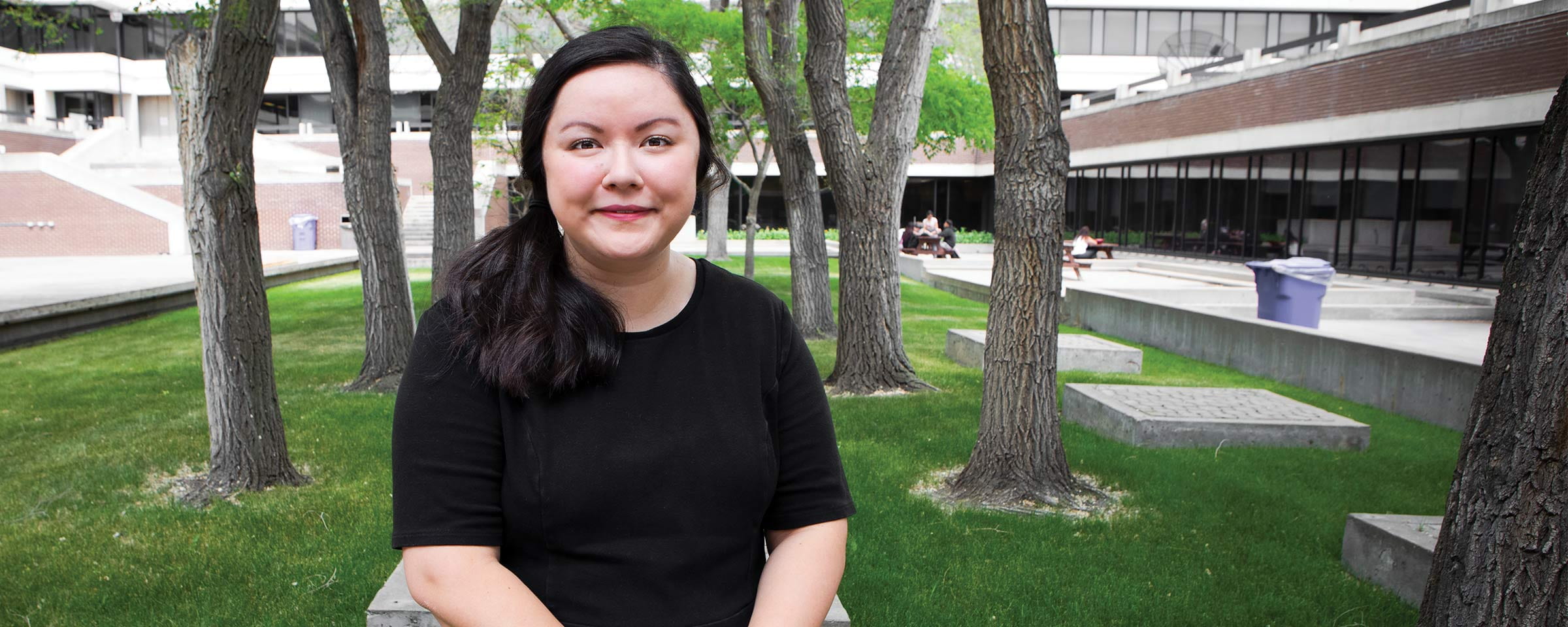Haas Foundation Legacy Award sparks new future for CNC Machinist student
Intrigued by the prospect of using computers to do a job he was trained to do by hand, Brian Carmona enrolled in Red River College’s CNC Machinist program to learn the computer numeral code that instructs the high-precision welders, cutters and other tools used in advanced automated manufacturing.
Now, two years later, he’s the recipient of the 2021 Gene Haas Foundation Legacy Award, given each year to a student in the CNC Machinist or CNC Machining & Advanced Technology program.
The recognition, he says, “has changed my life.”
“I’ve always loved the process of turning materials into useful things,” says Carmona, who began his manufacturing career right out of high school, working as a plasma operator for a company that built trucks for agriculture.

Before long, it became clear to him that trading the cutter for code would open up new career prospects in an industry shifting rapidly towards automation.
However, when Carmona wasn’t learning CNC in class, he was working long hours to make ends meet. Receiving the Gene Haas Foundation Legacy Award, which covered the cost of his tuition, program fees, books and supplies, removed the financial burden and let him focus on his training.
Now he has his sights set on becoming a Red Seal Machinist or Red Seal Industrial Mechanic/Millwright after completing RRC’s CNC Machining & Advanced Technology program – an opportunity, he says, that would have been impossible without the award.
Carmona is one of 17 RRC students honoured this year by awards and bursaries funded by the Gene Haas Foundation and presented in partnership with Thomas Skinner & Son. The Gene Haas Foundation is the philanthropic arm of Haas Automation, the largest machine tool manufacturer in the western world. Thomas Skinner & Son is the Haas Automation distributor for Western Canada.
Awards like these are vital to drawing students to programs aimed at filling critical workforce gaps, says Mark Blackner, Chair of RRC’s Electrical, Mechanical and Manufacturing programs.
“As a manufacturing hub, Manitoba is home to big industry players hungry for employees trained in advanced skills and technology. We’re grateful for this partnership because it ensures our students, equipment and facilities stay at the cutting edge, so we can support the manufacturing industry as it continues to grow and change.”
The manufacturing industry spans a wide range of sectors, adds Blackner, including transportation, medical technology, and agriculture – continuously adding to the need for highly specialized skills in computer-aided drafting, design, manufacturing, 3D printing, and mechatronics.
RRC’s partnership with Haas and Thomas Skinner began in 2008, when the College approached the two companies about acquiring CNC machines to help students catch up to the technology.
Since then, the partnership has grown to include scholarship and bursary support, and a $500,000 investment in the Haas Innovation Lab at the College’s Skilled Trades and Technology Centre, where manufacturing industry partners work with RRC experts and students on applied research projects. Thanks in part to this investment, the College now has one of the largest and most advanced manufacturing training programs in the country.
Paul Krainer, president of Thomas Skinner & Son, says he and his father, who owned the company before him, both saw the value of investing in education after they began supplying machines to local high schools.
“By forging deep relationships with schools and polytechnics like Red River College, we have a direct hand in training the future of our business. Technological advancement and disruption mean that training programs can’t lag behind. They must always stay one step ahead – and that takes ongoing investment.”
That belief was shared by Gene Haas, founder of Haas Automation and the Gene Haas Foundation, whose generous financial support drives the partnership forward.
Krainer says the results of the partnership and others like it are already bearing fruit across the industry.
“We’re seeing more and better-trained people pursuing careers in precision manufacturing – and a stronger workforce making our country’s industry more globally competitive.”

